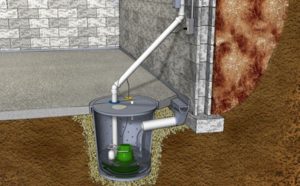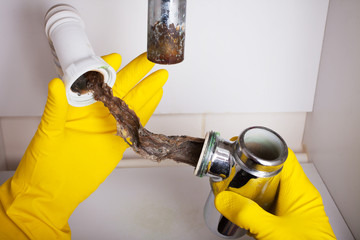Plumbers Aurora CO are responsible for installing and repairing pipes that supply water, gas, waste, and other materials to homes and businesses. They also work on fixtures such as sinks, toilets, and bathtubs.
This career often involves working with hazardous materials like sewage and can expose workers to diseases such as cholera, typhoid, hepatitis, and cryptosporidiosis. It can also be physically demanding and require manual dexterity to use tools.
Whether they work on new construction or existing homes and businesses, plumbers install pipes that carry water, waste, and gas throughout the structure. This includes installing faucets, showerheads, toilets, and other fixtures. They also connect piping to appliances such as dishwashers and washing machines, and inspect and test the plumbing for any issues. While this may seem simple enough, it can be a complex job that requires special training, tools, and equipment.
When a plumber is working on a new construction project, they must first map out the pipe layout. This involves marking out where the pipes will go, factoring in the removal of drywall, flooring, and other existing components. Once the plumber has a good understanding of the layout, they can begin the installation process. This phase usually takes the longest, and it’s important that the plumbers take their time to ensure the pipe layout is correct.
After the plumbing is installed, the plumbers can add the finishing touches. This includes connecting the drains to the fixtures, testing the plumbing for any leaks, and ensuring that all parts are functional. If there are any issues, the plumber can make adjustments and replace the defective parts.
Most people don’t think about their plumbing until something goes wrong, but it’s wise to have regular inspections done by a licensed plumber to catch any issues before they become serious. Not only will this prevent damage to your home or business, but it can save you money in the long run by preventing costly repairs.
When you’re planning a major plumbing project, it’s a good idea to budget for the work ahead of time. This will help you avoid unexpected expenses and delays, and it will give you peace of mind that the work is being completed professionally and correctly. You can also ask your plumber to provide you with a quote for the entire project, which will allow you to compare options and prices from different companies.
If you’re unable to afford the cost of a plumbing project up front, consider asking your plumber about financing options. Many companies offer personal loans that can be repaid over a period of 12 or 60 months, with an interest rate that depends on your credit score. This is a great option for those who aren’t able to pay for their plumbing projects up front but need the work done quickly to avoid further damage.
Repair
Plumbers repair plumbing fixtures and systems that convey water, sewage, gas, or hot liquids. They may work on systems that serve households, industrial buildings, or public facilities. Their responsibilities may include detecting and repairing problems, installing new parts, or removing existing ones. They also train less experienced plumbers and help them complete projects. They may also be responsible for preparing cost estimates and documentation. Plumbers use tools like wrenches, pipe cutters, soldering equipment, and drain cleaning machines to perform their jobs. They are required to follow strict safety protocols when working with hazardous materials or in confined spaces.
Depending on the scope of the job, plumbers might be required to climb stairs or ladders or work in small, cramped areas. They might also be exposed to hazardous materials like asbestos, lead, mold, and chemicals. They must take care not to damage electrical wires in walls or ceilings while attempting to locate and repair pipes. They must also avoid exposure to biohazards like raw sewage or flood waters.
Most plumbers are on call to respond to emergencies, such as a clogged drain or broken water heater. They must have excellent problem-solving skills to diagnose and fix these issues quickly. In addition, they must be able to work under pressure when making repairs in high-stress situations.
For residential clients, plumbers usually charge an hourly rate. However, homeowners can reduce these costs by comparison shopping and asking for quotes before hiring a plumber. They should also be aware of other potential charges, such as service fees, trip fees, and septic tank pumping costs.
Commercial and industrial plumbers install large-scale plumbing systems in office buildings, restaurants, hospitals, factories, and power plants. These jobs require them to read blueprints, determine the layout of piping systems, and install fixtures and appliances according to specifications. They must also collaborate with architects and construction teams to ensure that plumbing systems integrate seamlessly into the overall building design. Some of these plumbing systems are complicated and involve large amounts of water or gas. These plumbers must also be able to work under tight deadlines and budget constraints.
Maintenance
Plumbing systems are complex, and it’s easy to ignore their needs until something goes wrong. A clogged drain, a leaky faucet, or a running toilet are all things most homeowners deal with at some point, but regular maintenance can catch these issues before they turn into costly emergency repairs.
Plumbers perform a variety of routine maintenance tasks to keep residential and commercial plumbing systems in good condition. These include cleaning drain lines, inspecting water heaters, and checking to see if there are any signs of leaks or corrosion. They also check septic and sewer systems to ensure that the flow of waste is not blocked.
The most common plumbing problems are the result of neglect or improper maintenance. Homeowners should make it a point to take care of their plumbing and schedule annual maintenance with professional plumbers. Regular maintenance can prevent premature aging, deterioration, and inefficient performance that can lead to expensive repairs or replacements down the line.
Some plumbing maintenance is simple and can be done by the homeowner, such as replacing worn-out washers in shower heads and faucets or removing hair from drains to avoid clogs. However, most maintenance must be performed by a licensed plumber to ensure the safety and correct operation of the plumbing system.
Many plumbing problems can be prevented with routine maintenance, including repairing leaks and installing mesh drain covers in bathtubs and sinks. A dripping faucet or running toilet is not only an inconvenience, but it can cost you hundreds of dollars in wasted water each year. A leaking water heater can cause severe damage to your home, so it’s important to have it inspected and repaired as needed.
One of the most overlooked parts of plumbing maintenance is the sewer line. It’s not uncommon for people to only call a plumber when they have a problem with their sewer system, but these calls can be avoided with regular inspections. Professional plumbers use a camera to check the integrity of the sewer line and can recommend any necessary repairs.
Plumbers are also trained to inspect a wide range of plumbing components, including gas and electrical fixtures. They can also identify and repair any electrical problems related to the plumbing system. Plumbers must be able to read and interpret blueprints, schematic diagrams, plans, and specifications.
Customer Service
Providing superior plumber customer service can lead to repeat business and referrals, which are vital for any plumbing company. Customers want to feel confident that the plumber they choose will do an excellent job, be honest about what needs to be done and its cost, and follow through on their promises.
Plumbers should be professional in their appearance and manners. Showering each morning, removing any facial hair, and trimming it neatly are all good habits to help create a professional image. Wearing clean clothing and tucked-in shirts is also important. Smokers should carry breath spray and use it as needed to prevent their smoke from saturating their clothes. In addition, the best way to show professionalism is to be punctual for appointments and prepared with all the necessary tools for each job.
Once the plumber is on the job, he must listen carefully to the customer’s concerns and needs and then provide an accurate assessment of the problem and his suggested fix. He should also explain the costs of parts and labor to allow the customer to make an informed decision. He should also be willing to offer options for the repair that might be more cost-effective than the original repair.
Finally, a good plumber will follow up with the customer after the work is complete to ensure that everything is working correctly and to obtain feedback about his performance. This helps the plumber improve his business operations and provides valuable information to future customers. As the saying goes, “the customer is always right.” In today’s competitive marketplace, plumbers must be willing to go the extra mile for their customers. This will keep them happy, which will ultimately increase the likelihood that they will recommend your services to friends and family.


